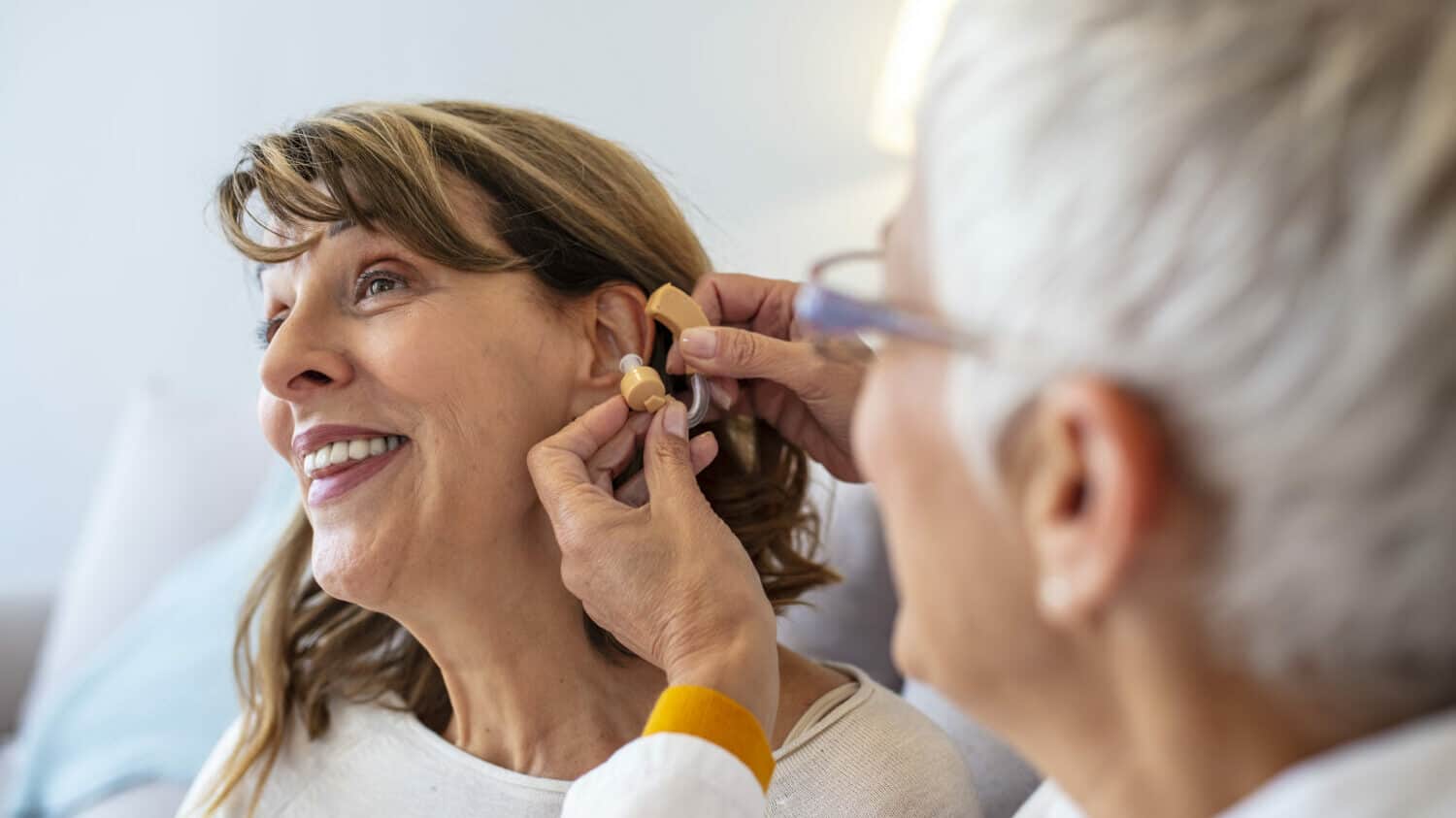
Best Over The Counter (OTC) Hearing Aids
The Realities of Hearing Aids
A growing number of Americans need hearing aids to cover a wide range of hearing loss that negatively impacts their quality of life. But, for many people, traditional hearing aids, which are frequently not covered by insurance packages, can be prohibitively costly. In fact, they price many people out of the market. However, people should not despair. There are options that allow people to return to normal daily functioning without breaking the bank.
What Are the Options?
As noted above, there are many options for people who may find traditional hearing aids cost-prohibitive. For example, some hearing aid stores and manufacturers offer attractive financing packages so that people can spread out the initial purchase price over several months. However, even spread over time, the cost of traditional hearing aids, which are often upwards of $2,000 per ear, can be overwhelming for many.
For those looking for a more appealing option, one possibility is over-the-counter (OTC) hearing aids.
Over-the-Counter (OTC) Hearing Aids
So, what are over-the-counter hearing aids? Traditionally, hearing aids on the United States market have been regulated by our country’s Food and Drug Administration (FDA). Regulation generally takes the form of specifying who can sell hearing aids. Until recently, hearing aids could only be sold by specialized hearing clinics or ear, nose, and throat doctors, as well as by audiologists.
OTC hearing aids would not require a person in need to visit a doctor or hearing aid store. Instead, these OTC models would be available at a wide range of stores, as well as online. A person who needed help with their hearing would be able to shop for these devices and determine which option worked best for them, all while saving significant amounts of money compared with traditional hearing aids.
The Good, the Bad, and the Ugly
Like any device, OTC hearing aids have both benefits and drawbacks.
The Benefits
On the positive side, because these devices are not as tightly regulated as other types of hearing aids, they tend to be much more affordable. This means that they may be more accessible to people with lower income levels. They may also be more affordable since they do not always have all of the bells and whistles that some of the more technologically advanced hearing aids do. Yet, even without these add-ons, they can often be an effective tool for those with lower levels of hearing loss.
The Drawbacks
Yet, these benefits do not mean that there are no weaknesses. Since these devices are not as technologically sophisticated, they may only work well for people with low levels of hearing loss. People with more profound hearing losses may need to bite the bullet and visit a professional to determine a better device to suit their needs. Also, the quality of these over-the-counter hearing aids may vary dramatically. Some products may be very useful, and other products may leave users frustrated.
OTC Hearing Aids versus Personal Sound Amplification Products (PSAPs)
Many people have come across the term OTC hearing aids, as well as the term personal sound amplification products, or PSAPs, as they are more commonly known. But, even though these terms may be relatively well-known, many people do not understand if there is a difference between these two products.
Is There A Difference Between Them?
The realistic answer to this question is both a resounding yes and a strong no. Until recently, the term PSAP referred to a hearing aid that a person could purchase and use without dealing with a hearing and/or medical profession. These PSAPs were geared towards people who had relatively minor hearing losses in which the loss did not significantly negatively impact their quality of life. Symptoms for these people are relatively minor. For example, a PSAP wearer may struggle to hear their television without an assisted device.
Recognizing that PSAPs were potentially beneficial, even given their dramatically different quality levels, the FDA, which had not previously regulated this market, stepped in and decided to begin the process of regulating and overseeing these types of products. OTC hearing aids are simply the regulated version of PSAPs.
The Best OTC Hearing Aids
As noted above, the quality of PSAPs and OTC hearing aids can vary dramatically. Some of the products do a dramatically better job of restoring people’s hearing and helping them return to their previous way of life. Most users tend to note problems with some of the less expensive PSAPs/OTC hearing aids. It seems to many that you actually get what your pay for with these products.
The best over-the-counter products on the market tend to focus on the ease of use for users, while also trying to maintain a broader range of features all at an attractive price point. Some products, however, are not able to check off all of these qualities.
Life Ear Boost
One product that has generally received favorable reviews is the Life Ear Boost. This product can often be found at a reasonable price, but there are two hiccups. One, it is frequently out-of-stock, and the global Covid-19 pandemic makes it challenging to know when your order will show up on your doorstep. Second, some reviewers have raised concern about product durability.
RCA RPSA 10 Symphionix
Another positively reviewed option is the RCA RPSA 10 Symphionix. This model offers numerous benefits, including the fact that it is a relatively small device that can easily be hidden, ensuring that people will not be focusing on your disability.
As the FDA moves forward with its plan of designating and later overseeing the use of these devices, one would naturally assume that manufacturers start ramping up production of these over-the-counter hearing aids.
In Conclusion
Many Americans would benefit from having hearing aids, particularly as they age and some of their hearing acuity begins to lessen. But, traditional hearing aids are expensive, and not everyone will have the money to buy them. This is why PSAPs and OTC hearing aids are so important. These devices will allow people who have struggled with declines in their hearing to return to their normal quality of life.






